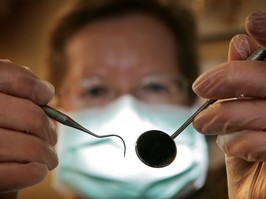poor oral care can hurt people’s
health, but not everyone can afford to take care of their teeth. a new
program is expected to help ease the financial burden felt by up to
six million eligible canadians by providing them with equitable access to dental care. the plan, which is set to fully roll out in
2025, will first be available to children under the age of 12 and will then expand to 18-year-olds, seniors, and people with a disability in
2023. in its first year, because those eligible may require restorative work or multiple interventions, the cost of the program will reach
$3 billion — with unmet dental needs out of the way, the annual price tag is expected to be around
$1.5 billion.
this is good news for those without health insurance, as well as canadian families with an annual income of less than
$90,000. under the new plan, individuals who make less than
$70,000 can also expect fewer out-of-pocket expenses as the dental co-payment fee — typically charged to the patient every time a claim is filed with an insurance carrier — is set to be fully covered by the government.
poor oral care has been linked to
cavities and
gum disease, but also to more
serious conditions, such as pneumonia, cardiovascular disease, osteoporosis and
diabetes — those who neglect their mouth may lose their teeth, which can make
chewing food especially challenging. the social stigma experienced by people who can’t afford dental care has also been well established by
studies that show that these individuals are perceived as less intelligent by others.
 4 minute read
4 minute read









